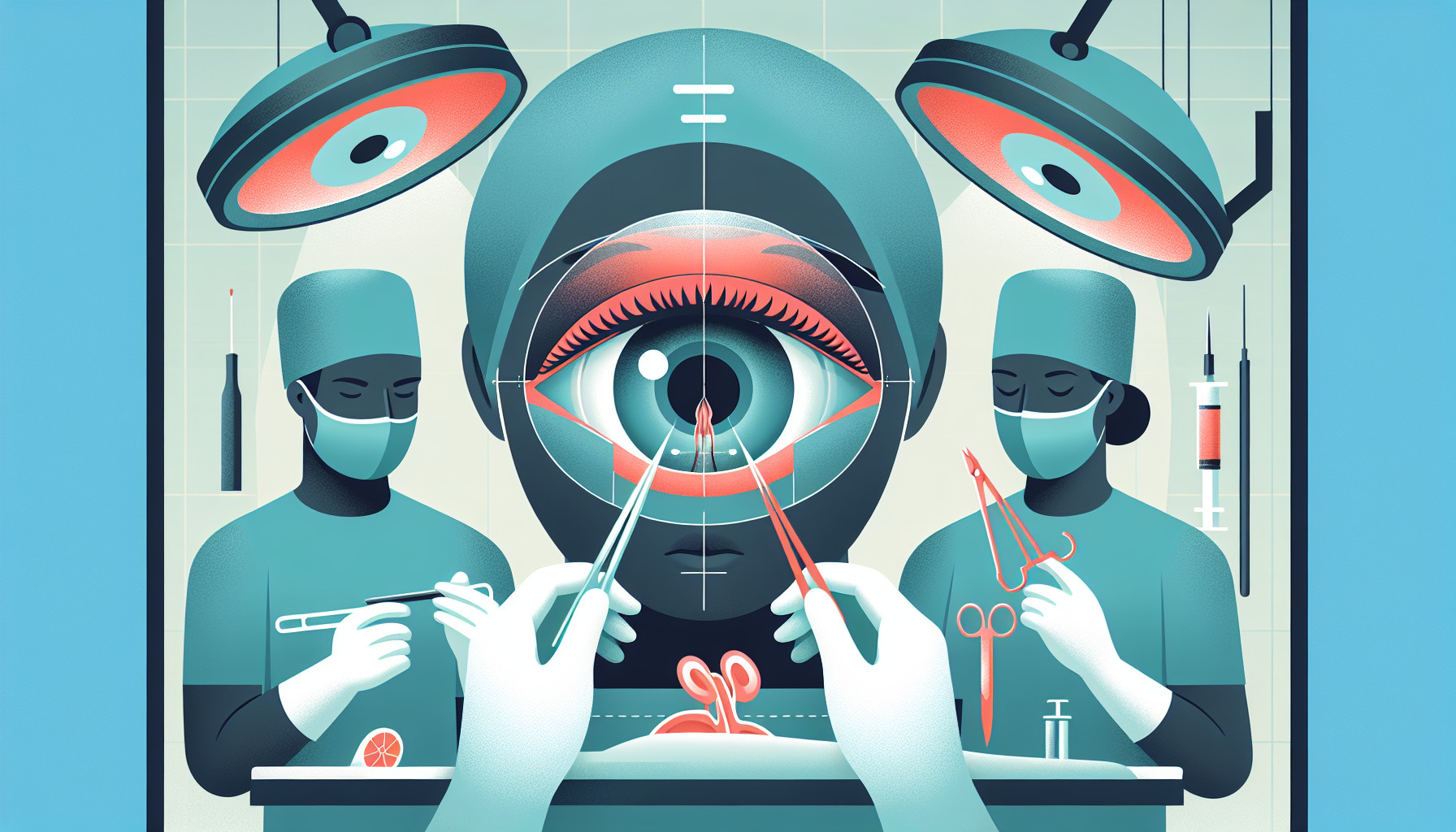Our Summary
This research paper looks into the effect of eye surgery on strabismus, a condition where the eyes do not properly align with each other. Out of 515 studies, 26 were closely examined. The findings suggest that eye surgery can help reduce the angle of deviation (or how much the eyes are misaligned) in some patients. However, the success of the surgery depends on several factors including the type of strabismus, the patient’s age, and the degree of the patient’s refractive error (how much the eye can’t focus light). The research suggests that eye surgery can be a helpful treatment for some types of strabismus, particularly in patients with stable, mild to moderate myopia (nearsightedness) or hyperopia (farsightedness). However, more evidence is needed to recommend this treatment for all types of strabismus.
FAQs
- What is the potential impact of eye surgery on strabismus according to the research paper?
- What factors determine the success of eye surgery for strabismus patients?
- Can eye surgery be recommended as a treatment for all types of strabismus based on the findings of the research?
Doctor’s Tip
One helpful tip a doctor might tell a patient about strabismus surgery is to follow all pre-operative instructions carefully to ensure the best possible outcome. This may include avoiding certain medications, fasting before surgery, and taking any prescribed eye drops as directed. Additionally, the doctor may advise the patient on what to expect during the recovery period, such as potential discomfort, swelling, and temporary changes in vision. It is important for the patient to attend all follow-up appointments and adhere to any post-operative care instructions provided by the doctor to ensure a successful recovery.
Suitable For
In general, patients who are recommended for strabismus surgery are those who have:
- Persistent misalignment of the eyes that cannot be corrected with glasses or other non-surgical treatments
- Significant angle of deviation that is impacting their vision or causing double vision
- Strabismus that is interfering with their daily activities or causing social or emotional issues
- Stable refractive error that can be corrected with glasses or contact lenses
- Good overall health and no medical conditions that would increase the risk of surgery.
It is important for patients to undergo a thorough evaluation by an ophthalmologist or strabismus specialist to determine if they are a good candidate for surgery. The decision to undergo strabismus surgery should be made carefully, weighing the potential benefits and risks of the procedure.
Timeline
Before strabismus surgery:
- Patient notices misalignment of their eyes, which may cause double vision or difficulty focusing.
- Patient visits an ophthalmologist for a comprehensive eye exam to determine the type and severity of strabismus.
- Ophthalmologist recommends non-surgical treatments such as vision therapy, prism glasses, or botulinum toxin injections.
- If non-surgical treatments are not effective, ophthalmologist discusses the option of strabismus surgery with the patient.
- Patient undergoes pre-operative testing and evaluation to assess their overall health and eye condition before the surgery.
After strabismus surgery:
- Patient undergoes the surgical procedure to correct the alignment of their eyes.
- Patient may experience discomfort, redness, and swelling in the eyes following the surgery.
- Patient may be prescribed eye drops or medications to manage pain and prevent infection.
- Patient is advised to rest and avoid strenuous activities for a period of time to allow the eyes to heal.
- Patient attends follow-up appointments with the ophthalmologist to monitor the progress of their eyes alignment and to make any necessary adjustments to their treatment plan.
- Patient may undergo vision therapy or wear corrective lenses to improve their visual function post-surgery.
What to Ask Your Doctor
- What type of strabismus do I have and how severe is it?
- What are the potential risks and complications of strabismus surgery?
- How successful is strabismus surgery in treating my specific type of strabismus?
- What are the alternative treatment options available for my condition?
- What is the recovery process like after strabismus surgery?
- How long will it take for me to see improvements in my eye alignment after surgery?
- Will I need to wear glasses or use other visual aids after surgery?
- Are there any long-term effects or concerns I should be aware of after strabismus surgery?
- How many strabismus surgeries have you performed and what is your success rate?
- Are there any specific pre-surgical preparations or post-surgical care instructions I should follow?
Reference
Authors: MacNeill K, Jindani Y, Patil N, Solish D, Gelkopf MJ, Sabri K. Journal: J Cataract Refract Surg. 2023 Oct 1;49(10):1061-1067. doi: 10.1097/j.jcrs.0000000000001213. PMID: 37144642
